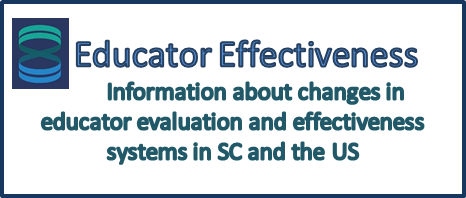"Significant Factor"
Waiver Principle 3 requires changes to teacher and principal evaluations. States must include student growth as a "significant factor," and in the ESEA-required tested grades and subjects (ELA and math in grades 3-8 and once in HS; science once in elementary, middle, and high) those tests must be part of student growth. Kansas proposed guidelines without specifying percentages. As reported in the Topeka Capital-Journal, "Test scores will be one of the indicators, but the state won’t mandate what percentage that must comprise of a given teacher or principal’s evaluation."
This approval is interesting given representations made by some that the USED won't approve waiver amendments if certain percentages are not included in a state's guidelines. Now we have proof that USED will approve plans with more flexibility.
College- & Career-Ready Standards
Both Oklahoma and Indiana moved away from the common core state standards and related assessments, which had been their method for complying with Principle 1 of the NCLB waiver.
Indiana went the "Virginia" route. Indiana's State Board adopted the 2014 Indiana State Standards and its Commission on Higher Education certified that students meeting those standards would not need remedial course work in post-secondary education.
Oklahoma decided to revert to its 2010 state standards. USED gave the state until August 12 to supply evidence that its higher ed institutions had certified the standards as "college- and career-ready." Oklahoma send a letter stating it could not submit evidence by the deadline, and did not have a timetable for getting it - so the waiver was not extended for School Year 14-15.
Other states facing the anti-common core movement should take note if they want to keep their NCLB waivers: make sure your higher ed institutions are on board.
Oklahoma faces the challenges that Washington state is experiencing in undoing the waiver and reverting to NCLB metrics.




